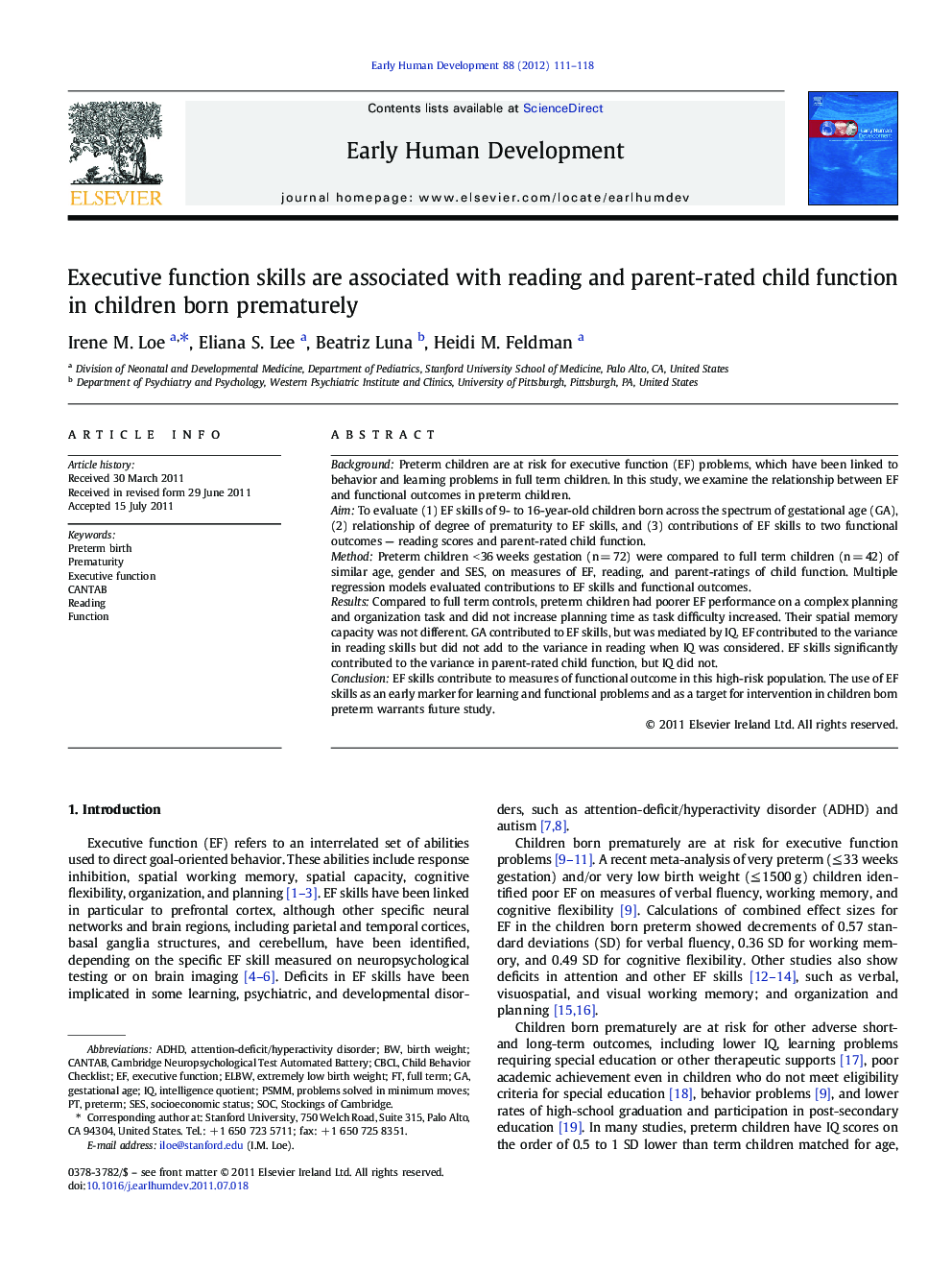| Article ID | Journal | Published Year | Pages | File Type |
|---|---|---|---|---|
| 3916993 | Early Human Development | 2012 | 8 Pages |
BackgroundPreterm children are at risk for executive function (EF) problems, which have been linked to behavior and learning problems in full term children. In this study, we examine the relationship between EF and functional outcomes in preterm children.AimTo evaluate (1) EF skills of 9- to 16-year-old children born across the spectrum of gestational age (GA), (2) relationship of degree of prematurity to EF skills, and (3) contributions of EF skills to two functional outcomes — reading scores and parent-rated child function.MethodPreterm children < 36 weeks gestation (n = 72) were compared to full term children (n = 42) of similar age, gender and SES, on measures of EF, reading, and parent-ratings of child function. Multiple regression models evaluated contributions to EF skills and functional outcomes.ResultsCompared to full term controls, preterm children had poorer EF performance on a complex planning and organization task and did not increase planning time as task difficulty increased. Their spatial memory capacity was not different. GA contributed to EF skills, but was mediated by IQ. EF contributed to the variance in reading skills but did not add to the variance in reading when IQ was considered. EF skills significantly contributed to the variance in parent-rated child function, but IQ did not.ConclusionEF skills contribute to measures of functional outcome in this high-risk population. The use of EF skills as an early marker for learning and functional problems and as a target for intervention in children born preterm warrants future study.
